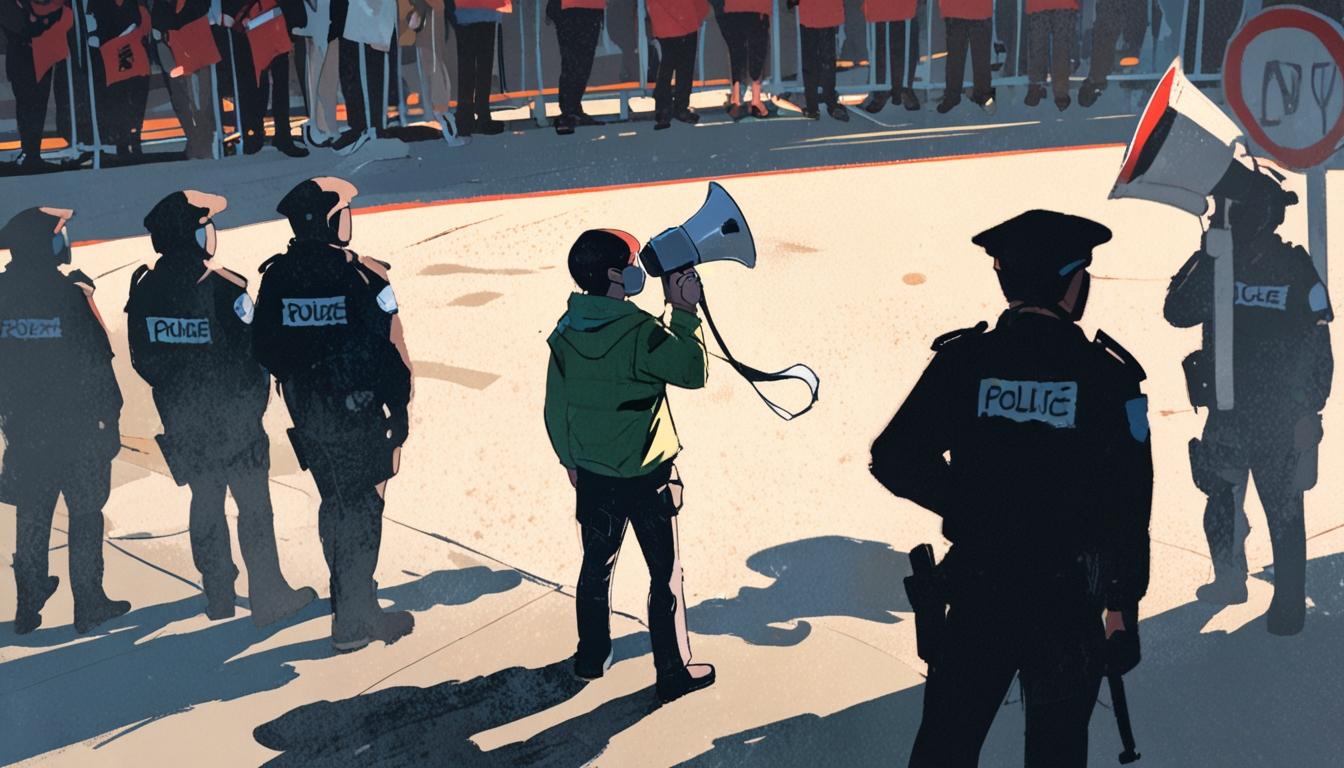The recent changes ushered in by the Police, Crime, Sentencing and Courts Act 2022 have sparked significant outrage over their chilling effects on the right to protest in the UK. By redefining public nuisance to include “serious annoyance or inconvenience,” the legislation threatens to suffocate the very essence of peaceful protest. Many demonstrations inherently disrupt the status quo; this new legal framework transforms such disruptions into potential criminal acts.
Critics are right to raise alarms, especially in light of the alarming police intervention at a meeting of young women in a Quaker house. What was simply a gathering for honest discussion was misconstrued by law enforcement as a threat to public order. This alarming trend reflects a disconcerting shift wherein civic engagement is now seen through a lens of suspicion and repression.
Dr. Craig Reeves from Birkbeck, University of London, succinctly articulates this issue, pointing out that a vague interpretation of “serious annoyance” could lead to mundane activities being criminalised. The authorities are now equipped with the dubious power to determine which expressions of dissent are acceptable, creating a precarious environment for those who dare to voice unpopular opinions.
Organizations like Liberty have added their voices to the outcry, drawing attention to the law’s pernicious effects not just on group protests but even solitary demonstrations. The heightened penalties for breaching protest conditions serve to inhibit free expression, making citizens think twice before they voice dissent amidst looming legal repercussions. Such a stifling atmosphere threatens public debate on vital societal issues, undermining the democratic fabric we rely upon.
The sweeping nature of the Act has faced scrutiny from legal professionals, including those at Garden Court Chambers. They warn that blurring the lines between civil disobedience and unlawful activity could pave the way for a systematic crackdown on diverse expressions of dissent. Characterising non-violent protests as public nuisances sets a concerning precedent, effectively silencing dissenting voices that are crucial for the health of a dynamic democracy.
Furthermore, the Joint Committee on Human Rights has expressed concerns that this legislation may infringe on the rights enshrined in Articles 10 and 11 of the European Convention on Human Rights, which protect freedoms of expression and assembly. The unwieldy definition of public nuisance could empower law enforcement to quash protests that, despite being disruptive, are essential to a thriving democratic society.
This troubling legal landscape invites an urgent reevaluation of not only the policing tactics used against protests but the broader legislative context that supports such measures. With laws that frame civic engagement as a public nuisance, the risk of eroding the foundations of public discourse looms large, leading to a society that is less free and less accepting of diverse opinions.
As citizens navigate the ramifications of the Police, Crime, Sentencing and Courts Act 2022, it is imperative to confront how we legislate public protest. The pressing need to strike a balance between maintaining public order and safeguarding fundamental rights remains central to this vital discourse. The stakes are high, as the future of our democratic engagement hangs in the balance.
Source: Noah Wire Services
